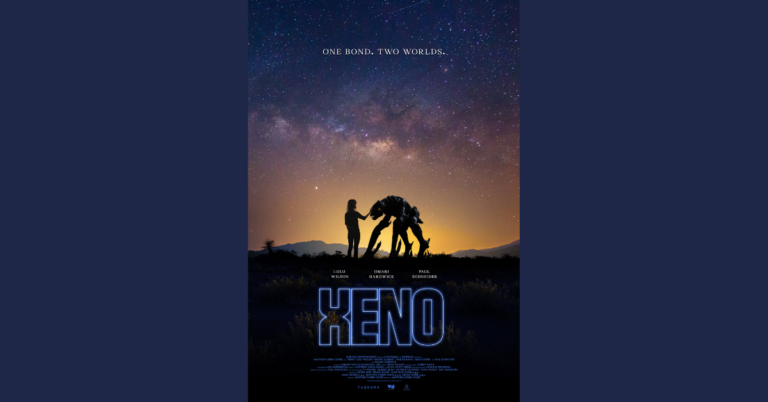Space Station 3D Christian Review

How often do we stop and think about the grandeur above us? I’m not talking about skyscrapers or planes slicing through the clouds—I mean the endless, velvet-dark void that blankets our world, punctuated by specks of light. Space Station 3D, an IMAX film that takes us 350 kilometers above Earth, attempts to shrink that vastness into something tangible, something we can momentarily hold in our imaginations. But does it succeed? Well, yes and no.
Marveling at the Heavens: Where Awe Meets God’s Handiwork
Right off the bat, there’s no denying that Space Station 3D knows how to show off creation. Those sweeping shots of Earth, floating like a fragile jewel in the infinite abyss, are arresting. As the camera drifts alongside astronauts, you can almost feel the sensation of weightlessness. For a brief, wonderful moment, you’re there—looking out at the same stars that guided shepherds and sailors thousands of years ago.
And that’s where the film’s magic really lies. It doesn’t just show us space; it reminds us of the One who made it. How could a Christian watch this and not think of Psalm 8:3-4? “When I look at your heavens, the work of your fingers, the moon and the stars, which you have set in place, what is man that you are mindful of him?” It’s humbling. And yet, instead of pushing this awe to its fullest, the film lingers on the technical, which, while impressive, feels like a missed opportunity to let the spiritual truly shine.
The Art of Unity in the Age of Division
The International Space Station isn’t just a marvel of engineering; it’s a testament to what humans can accomplish when they work together. The film nods to this, showing astronauts from different countries—once rivals, now teammates—building something extraordinary. If you squint, you can almost see echoes of the Tower of Babel, except this time, there’s a cooperative spirit instead of hubris.
But here’s the rub: the film glosses over the grit. The funding battles, the political disagreements, the sheer difficulty of coordinating across cultures and languages—none of it gets airtime. Instead, we’re left with an idealized view of harmony, which, while inspiring, feels incomplete. For Christians, this could have been a powerful example of how unity doesn’t mean the absence of struggle but the presence of grace and determination. Imagine if the film had leaned into that tension!
The Problem with Too Much Real
Here’s a question for you: When did reality start feeling less exciting than fiction? Space Station 3D grapples with this, and not always successfully. We’ve seen Hollywood’s space operas, with their dramatic lighting, swelling scores, and existential stakes. Against that backdrop, the quiet, methodical work of real astronauts—bolting things together, running experiments, floating in silence—can seem, well, dull.
And that’s unfair, isn’t it? These men and women are literally living out what so many of us only dream about. Yet the film struggles to make their experiences feel as gripping as they deserve. Part of the issue is the pacing—it moves so briskly from one scene to the next that there’s little time to let the weight of it all sink in. A slower, more contemplative approach might have helped capture the wonder and significance of what’s happening.
A Sanitized Perspective
If you’re expecting Space Station 3D to tackle the messy, complicated questions surrounding the ISS, you’ll be disappointed. Who pays the bills if a country defaults? What happens when international politics clash with scientific goals? The film doesn’t go there. And maybe it wasn’t meant to—it’s more of a celebration than an exposé. But for those of us who crave depth, who want to see the full picture, this omission leaves a noticeable gap.
As Christians, we know that truth is often messy. The Bible doesn’t shy away from showing the flaws and struggles of its heroes. By avoiding these complexities, the film misses a chance to reflect the nuanced reality of human collaboration.
Where’s the Soul?
For a film about space—a place that has inspired countless people to ask big, existential questions—Space Station 3D is surprisingly silent on matters of the soul. The astronauts’ view of Earth, so small and interconnected, is the kind of perspective that often leads to profound reflections. Yet the film doesn’t explore this. It’s as if it’s afraid to go deeper, to ask what it all means.
As a Christian viewer, this felt like a glaring omission. Space is one of the few places where the vastness of creation is undeniable. It’s where the words of Genesis 1:1—“In the beginning, God created the heavens and the earth”—come alive in a tangible way. Why not lean into that? Why not let the audience sit with the enormity of it all?
Family-Friendly, but Not Life-Changing
One thing Space Station 3D does well is keep things clean and accessible. There’s no objectionable content here, making it a safe choice for family movie night. And if you’ve got kids who love science or space, they’ll probably be thrilled. But for adults looking for something more—something that transcends the technical and touches the heart—it might leave you wanting.
Final Reflections
So, where does that leave us? Space Station 3D is a visual treat, a chance to see space as few ever will. It captures the grandeur of God’s creation and the ingenuity of human collaboration. But it also plays it safe, avoiding the deeper questions and emotional beats that could have made it truly memorable.
Maybe that’s okay. Not every film has to change your life. Sometimes, it’s enough to sit in a theater, strap on some 3D goggles, and marvel at the fact that we’re even capable of going to space in the first place.
Rating: 6.5/10
It’s worth watching—especially if you’ve got an IMAX theater nearby. But don’t expect it to stay with you long after the credits roll. Instead, let it be a starting point, a reminder to look up at the night sky and think about the God who made it all. That’s where the real wonder lies.






